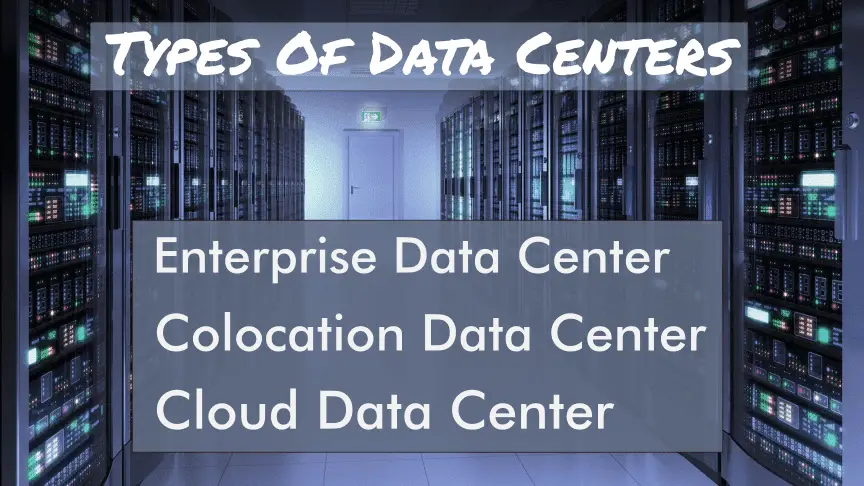Types of Data Centers:

Data centers are facilities that house computer systems and associated components, such as telecommunications and storage systems. They are essential for managing and storing digital information and providing various IT services.
The four main types of data centers are:

- Enterprise Data Centers: These are owned and operated by individual companies or organizations to support their own IT infrastructure and data storage needs. Enterprise data centers are used to run critical business applications, store sensitive data, and manage various IT operations. They are typically designed to meet specific organizational requirements and may range in size from small server rooms to larger facilities.
- Colocation Data Centers: Colocation data centers are facilities where multiple companies rent space to house their own servers, networking equipment, and other hardware. In a colocation setup, the data center provider offers the physical infrastructure, power, cooling, and security, while the individual companies maintain control over their own equipment and IT operations. This can be a cost-effective solution for businesses that need reliable data center services without the upfront capital investment.
- Cloud Data Centers: Cloud data centers are large-scale facilities operated by cloud service providers such as Amazon Web Services (AWS), Microsoft Azure, and Google Cloud. These data centers offer virtualized computing resources, storage, and networking services to customers on a pay-as-you-go basis. Cloud data centers enable businesses to scale their IT infrastructure dynamically, access a wide range of services, and pay only for the resources they use.
- Edge Data Centers: Edge data centers are strategically located facilities that bring computing resources closer to the data source or end-users. They are designed to reduce latency and improve performance for applications that require real-time processing, such as IoT (Internet of Things) devices, content delivery networks (CDNs), and critical industrial processes. Edge data centers help address the limitations of centralized cloud architectures by processing data closer to where it's generated or consumed.
These four types of data centers cater to various needs and requirements of organizations, offering different levels of control, scalability, and proximity to data sources. The choice of which type to use depends on factors such as business goals, budget, scalability requirements, data security, and application performance needs.
Thank You
